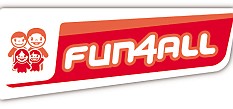A sports video game is a video game that simulates the practice of sports. Most sports have been recreated with video games, including team sports, track and field, extreme sports, and combat sports. Some games emphasize playing the sport, whilst others emphasize strategy and sport management. Some, such as Need for Speed, Arch Rivals and Punch-Out!!, satirize the sport for comic effect. This genre has been popular throughout the history of video games and is competitive, just like real-world sports. A number of game series feature the names and characteristics of real teams and players, and are updated annually to reflect real-world changes. The sports genre is one of the oldest genres in gaming history.

Super Castlevania IV is a 1991 platform game developed and published by Konami for the Super Nintendo Entertainment System. It has been re-released multiple times, including for the Super NES Classic Edition.
Super Smash Bros. is a crossover platform fighting game series published by Nintendo. The series was created by Masahiro Sakurai, who has directed every game in the series. The series is known for its unique gameplay objective which differs from that of traditional fighters, in that the aim is to increase damage counters and knock opponents off the stage instead of depleting life bars.
A multitap is a video game console peripheral that increases the number of controller ports available to the player, allowing additional controllers to be plugged in simultaneously in a manner similar to a power strip or a USB hub. A multitap often takes the form of a box with three or more controller ports which is then connected to a controller port on the console itself.
Powerful Pro Baseball, previously known as Jikkyō Powerful Pro Yakyū and marketed internationally as Power Pros, is a Japanese baseball video game series created by Konami. The game is known for its super deformed characters, and fast-paced but deep game play. Most games in the series are developed under license from the Nippon Professional Baseball (NPB) and the Japan Professional Baseball Players Association (JPBPA), letting them use the league's team names, stadiums, colors, and players' names and likenesses. There are also six games in the series with the Major League Baseball (MLB) and Major League Baseball Players Association (MLBPA) license, two with the Korea Baseball Organization (KBO) and Korea Professional Baseball Players Association (KPBPA), and one with the World Baseball Classic license. It is long running in Japan, starting out in 1994 for the Super Famicom, and appearing on many different consoles: Saturn (1995–1997), PlayStation (1994–2003), Nintendo 64 (1997–2001), PlayStation 2 (2000–2009), Dreamcast (2000), GameCube (2002–2006), Wii (2007–2009), PlayStation 3 (2010–2016), PlayStation 4 as well as PlayStation Portable (2007–2013) and Vita (2012-2018).

MLB 06: The Show is a baseball video game for PlayStation 2 and PlayStation Portable. The game was produced by Sony Computer Entertainment, primarily by SCE's San Diego Studio, which was formerly known as 989 Sports. It is the first game in the MLB: The Show franchise.

Major League Baseball 2K6 is a 2006 Major League Baseball licensed baseball video game developed by Kush Games and published by 2K. It was released for Xbox 360, Xbox, GameCube, PlayStation 2 and PlayStation Portable. This is the first time the any 2K Sports game was released for a Nintendo system since the 2K3 Series of games and the first Major League Baseball 2K game as World Series Baseball 2K3 was canceled for the system along with the 2K4/ESPN Series of games.

Pro Evolution Soccer 6, known as Winning Eleven: Pro Evolution Soccer 2007 in the United States, is a video game developed and published by Konami. Released in 2006 for the PlayStation 2, Xbox 360, and Microsoft Windows platforms and following on the Nintendo DS and PlayStation Portable afterward, Pro Evolution Soccer 6 is the 6th edition of the Pro Evolution Soccer series for the PlayStation 2, 2nd for the PlayStation Portable and 4th for Microsoft Windows. It is the first game to debut on the Nintendo DS and the Xbox 360. The Xbox 360 version features improved graphics, but retains gameplay similar to the other console versions. The edit mode has been stripped down for the Xbox 360 release, due to time restrictions. The graphics engine on the PC does not utilise the next-gen 360 engine but will again be a direct conversion of the PlayStation 2 engine.

Major League Baseball 2K8, or, in shorter terms, MLB 2K8, is an MLB licensed baseball simulation video game co-developed by Blue Castle Games and newly renamed 2K Los Angeles and published by 2K Sports for the PlayStation 2, PlayStation 3, PlayStation Portable, Wii, and Xbox 360. It was released on March 4, 2008. A demo was released on Xbox Live Marketplace the next day on March 5 for Canada, United States, and Asian markets and features the 2007 World Series opponents.

Pro Evolution Soccer 2008, known as World Soccer: Winning Eleven 2008 in Asia and sometimes called World Soccer: Winning Eleven 11 (PS2) in North America, is an association football video game in the Pro Evolution Soccer series by Konami. The game was announced on 18 June 2007. Its title is different from the other Pro Evolution Soccer games in that it is of a year and not a version; this was due to EA Sports' FIFA series naming their titles with two digit numbers, which would seem that PES was a year behind FIFA. It was released for Windows, Wii, Nintendo DS, PlayStation 3, PlayStation 2, PlayStation Portable, Xbox 360 And mobile. The game sold 6.37 million units worldwide. PES 2008 was succeeded by Pro Evolution Soccer 2009. This was the first game of the series to be released for the PS3 and Wii, as well as the first game in the series to be internationally available on a Nintendo home console.

Dragon Ball Z: Budokai Tenkaichi, released in Japan as Dragon Ball Z: Sparking!, is a series of fighting games developed by Spike based on the Dragon Ball manga series by Akira Toriyama. The series was published by Namco Bandai Games in Japan and Europe, and by Atari in North America and Australia until 2008. Since Budokai Tenkaichi 3, Bandai Namco has handled Dragon Ball game publishing in all regions, effectively ending Atari's involvement.

Mario Super Sluggers is a baseball adventure video game for the Wii developed by Namco Bandai Games and published by Nintendo. It is part of the Mario Sports series, and the sequel to Mario Superstar Baseball for the GameCube. Mario Super Sluggers was released in Japan on June 19, 2008 and in North America on August 25, 2008. It was not released in Europe and Australia.

Pro Evolution Soccer 2009 is a football video game in the Pro Evolution Soccer series, which was made by Konami. It is also the exclusive licensed game of the UEFA Champions League. The Wii version is known as Winning Eleven Play Maker 2009 in Japan. PES 2009 was succeeded by Pro Evolution Soccer 2010.

MLB Power Pros 2008 is the sequel to MLB Power Pros. It is a baseball video game developed by Power Pros Production and published by 2K in North America and Konami in Japan for Nintendo's Wii and Sony's PlayStation 2 video game consoles, as well as the Nintendo DS handheld, and is part of the traditionally Japan-only Power Pros series of video games. The game was released in 2008 and published by 2K. The game retains the same look, feel, and gameplay as its predecessor, but features updated rosters, new modes, new features, among others.
Power Pro Kun Pocket, sometimes simply called Pawapoke or Power Pocket, is a spin-off of the Power Pros series of baseball games developed by Power Pros Production. The series is released only on the Game Boy Color, Game Boy Advance and Nintendo DS.

Silent Hill: Shattered Memories is a 2009 survival horror game developed by Climax Studios and published by Konami Digital Entertainment. It was released in December for the Wii and ported to the PlayStation 2 and PlayStation Portable platforms in January 2010. In April 2014, it appeared on the PlayStation Network in Europe.

Fun4All is a brand made by Activision for their line of family-friendly video games for the Wii. The brand launched in Europe on February 13, 2009 and is exclusive to PAL territories. Activision planned to launch a similar brand in North America called "Wee 1st", but decided later to name it "Designed Exclusively for Wii". There are currently six titles that are a part of the Fun4All-brand.

Contra III: The Alien Wars is a 1992 run and gun video game developed and published by Konami for the Super Nintendo Entertainment System (SNES). It is the third home console entry in the Contra series after Contra (1988) and Super C (1990) for the Nintendo Entertainment System (NES). In PAL regions, it was retitled Super Probotector: Alien Rebels and the player characters were replaced with robots. The player is tasked with fighting off an alien invasion of Earth across six stages. Four stages feature side-scrolling action traditional to the series while two are presented from an overhead perspective. It is the first Contra title to have been directed by Nobuya Nakazato who later directed other games in the series. He designed Contra III to feature more comical elements, a more cinematic soundtrack, and tighter stage design than its predecessors.

Pro Yakyū Spirits is a Japanese baseball sports simulation game series, developed by Power Pros Production and published by Konami. It is a spin-off series of the Jikkyō Powerful Pro Yakyū franchise.

eFootball Pro Evolution Soccer, known as eFootball Winning Eleven in Japan, is a series of association football simulation video games developed by Konami Digital Entertainment Co., Ltd. and published by Konami.















